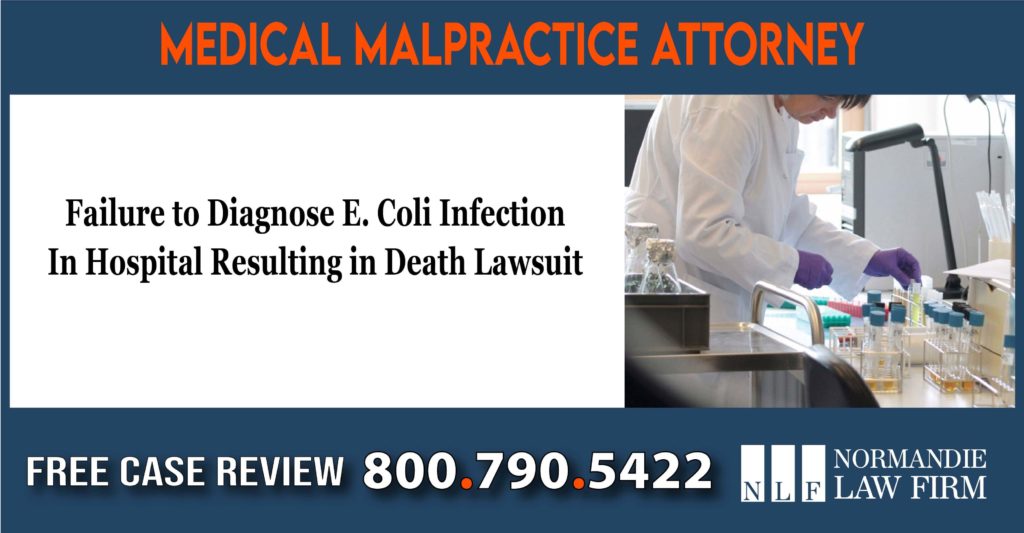What Is E. Coli?
In general, E. Coli is actually Escherichia coli, which is one of many hundreds of bacteria strains that live in the intestines of humans and other animals. The problem with E. coli is that a specific strain of E. coli 0157 is a toxic strain of the bacteria, and it can cause severe illness or death if humans are exposed to it. When you hear most people talk about acquiring E. coli, they are usually talking about E. coli 0157, because it has the most disastrous results in humans, and is definitely the most toxic for humans in that regard.
Why Is E. Coli So Dangerous to the Human Body?
E. coli (we are still talking exclusively about E. coli 0157, but will call it “E. coli” for short now) is dangerous and in the human body will usually cause an infection. That infection will manifest itself with bloody diarrhea and severe abdominal cramping. The symptoms can start a few days to a week after exposure to the E. coli bacteria. Complications from an exposure to E. coli can lead to a condition called Hemolytic Uremic Syndrome or HUS. If you have HUS there can be serious trouble with your bodily systems, as a result of exposure to this infection, which can result in:
- Kidney failure
- Neurological damage
- Permanent brain damage
- Death
You can get E. Coli quite easily from many different sources, including:
- Eating undercooked hamburger
- Eating raw produce such as sprouts or lettuce without washing it
- Drinking unpasteurized milk, juice and cider
- Swallowing pool water with E. coli 0157
- Going underwater in a hot tub or jacuzzi
- Swimming in contaminated lakes, springs, rivers and ponds
- Contact with unknowingly infected animals and pets
- Touching contaminated surfaces then touching your mouth
- Changing diapers and toileting and not washing hands thoroughly afterwards

Our Recent Verdicts and Settlements
$295,000
$250,000
$1.5 Million
$1.1 Million
$734,851
$460,000
How Can Having Undiagnosed E. Coli Lead to an Amputation or Death?
There have been medical cases where a person with diagnosed E. coli later developed complications, and a disease called purpura fulminans which resulted in skin necrosis (death of skin cells), resulting in an amputation of limbs. If a person develops purpura fulminans, there may be the necessity to have the individual undergo amputations for gangrene that can develop in the person’s skin with this disease. Additionally, purpura fulminans has a death rate of over 40% and it will cause serious other complications related to bacterial antigens and autoimmune issues.
What Are the Symptoms of E. Coli, and How Do I Know If I Have E. Coli?
You may never know that you have contracted E. coli, because some people have it but are asymptomatic with the infection. Most people though do get sick with E. coli, and can experience:
- Diarrhea
- Bloody stool
- Cramping in stomach
- Pain in abdomen
- Tenderness in belly
- Nausea
- Vomiting
- Fever
- Chills
- Malaise
It will be hard to know why a medical professional, doctor, attending physician, nurse, or healthcare provider misses a diagnosis for E. coli. But if you have contracted E. coli and have presented your symptoms in an emergency department, emergency room, urgent care facility or hospital and no one has been able to properly diagnose your condition of E. coli, there may be malpractice or negligence in that misdiagnosis. If you have a failure to diagnose an E. coli infection from your healthcare provider, you can call us today at the Normandie Law Firm at 800.790.5422. You can speak to an attorney with expertise in personal injuries and missed diagnosis for serious illnesses and infections from a healthcare provider.
Zero Fee Guarantee
You can call us for a zero-fee guarantee today, all that you have to do is to make the initial call to us, and we will legally advise you from there. We are here to take your call 24/7, just call the Normandie Law Firm at 800.790.5422.
Free Second Opinion Case Review / Experienced Lawyers in Failure to Diagnose E. Coli Infection
You can have a free second opinion case review when you call our attorneys who specialize in personal injuries from a missed diagnosis at a healthcare provider. We will review your case with care, and give you access to an experienced attorney in Los Angeles at the Normandie Law Firm at 800.790.5422.
Can I Sue for a Failure to Diagnose E. Coli Infection?
Yes, we can sue the healthcare providers who missed your diagnosis of E. coli infection, and for the resulting complications that you endured on account of the missed diagnosis. You can review your personal injury claim with our Los Angeles case lawyers, who can file a lawsuit on your behalf, based on the merits of your claim. Just call our case attorneys in Los Angeles today, at the Normandie Law Firm at 800.790.5422.
Average Case Value for a Failure to Diagnose E. Coli Infection
The average case value for a failure to diagnose an E. coli infection will depend on the severity of the infection, and whether it leads to a debilitating complication that results in a disability. If you have a disability related to a missed diagnosis of E. coli, your range of recovery compensation can be from $80,000 to $750,000, depending on your losses and expenses related to the claim. It is the better idea to give us a call and we can review your claim with you, to determine the settlement package applicable to your recovery compensation in this specific case.
How Long Does It Take to Settle and to Get Paid on These Cases?
The length of time that it takes to settle and get paid on a case of a missed and failure to diagnose an E. coli infection can range from 5-7 months, depending on the severity of the complications related to the infection. For example, if you suffered a total kidney failure because of a missed diagnosis for E. coli, you may have a permanent condition and disability related to that missed diagnosis.
Statute Of Limitations – How Long Do I Have to File a Lawsuit?
The statute of limitations in California for personal injury lawsuit filing is two years.
Call for a Free Consultation
References
Lowry, J., & Noel, E. (2022). A Rare Cause of a Rare Disorder: E. coli-Induced Purpura Fulminans Secondary to Urinary Tract Infection. Case Reports in Critical Care, 2022, 9291424. https://doi.org/10.1155/2022/9291424













